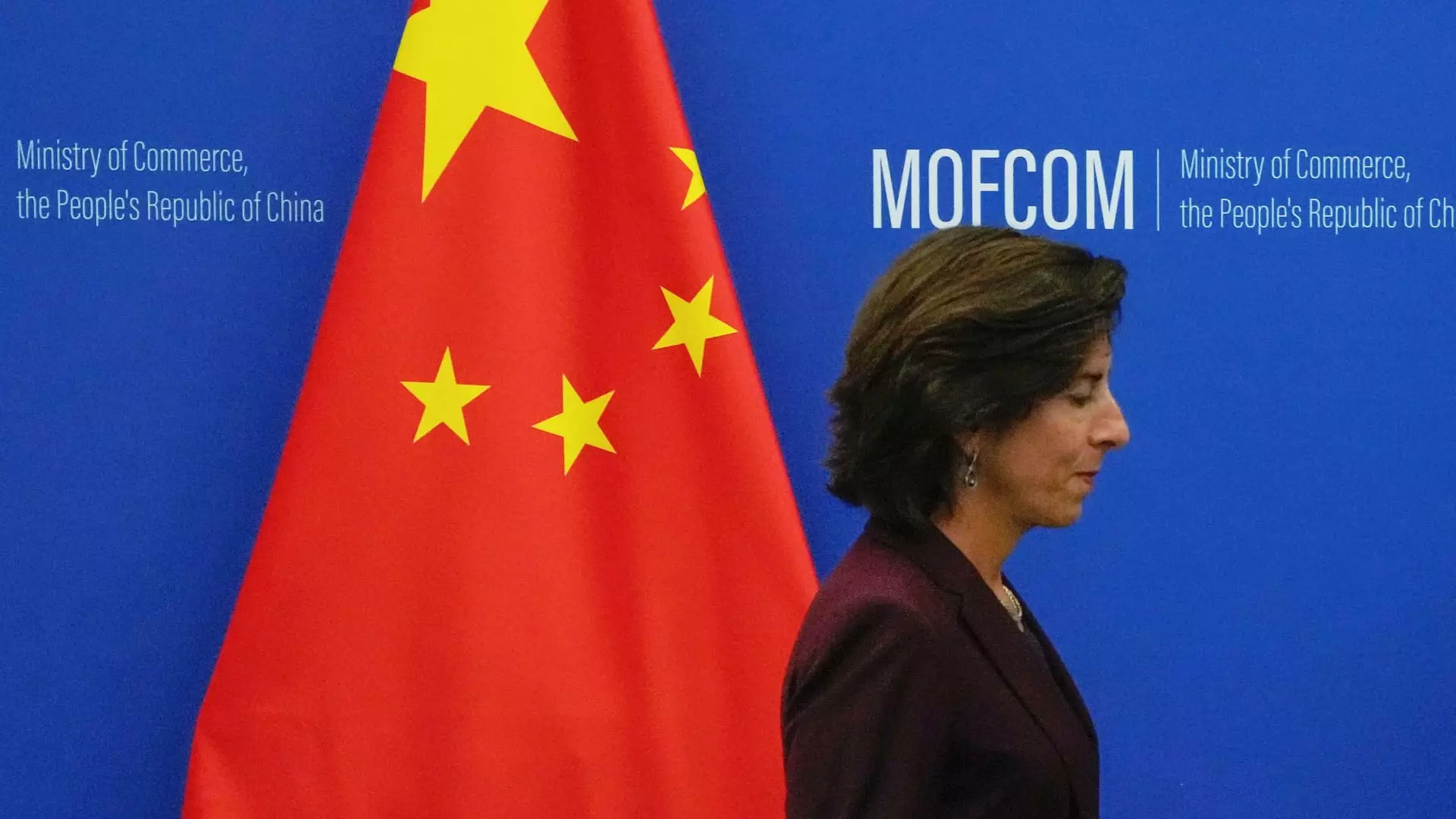The recent visit of U.S. Commerce Secretary Gina Raimondo to China has marked a significant step in establishing open lines of communication between the two nations. In a period where the bilateral relationship has grown increasingly tense, Raimondo’s visit emphasizes the need to manage the fierce competition with China while avoiding conflict. This article explores the importance of open communication and structured discussions in addressing commercial issues and preventing further escalation of tensions.
Raimondo’s assertion that the United States is involved in a fierce competition with China at every level is a critical recognition of the current reality. It is essential to approach this competition with a clear understanding that conflict is in no one’s interest. By acknowledging the competition, Raimondo sets the stage for fruitful dialogue and collaboration between the two nations.
Raimondo emphasizes that a lack of communication between the U.S. and China can lead to misunderstandings and further escalate tensions. By establishing open lines of communication, both nations can address commercial issues effectively. Structured discussions enable the identification of common ground and facilitate the development of mutually beneficial solutions. Miscommunication and lack of dialogue only serve to exacerbate existing tensions, making productive engagement impossible.
Raimondo’s visit to China is particularly significant considering the recent breach of her emails by Chinese hackers. By openly acknowledging this breach and addressing it during her visit, Raimondo confronts the issue head-on. Such transparency builds trust and signals a commitment to addressing cybersecurity concerns. The visit also provides an opportunity to discuss concerns regarding national security, U.S. labor, and U.S. business. By engaging in these discussions, both nations can work towards mutually acceptable solutions.
The U.S. Department of Commerce’s Bureau of Industry and Security introduced new export controls in 2022, limiting Chinese businesses’ ability to purchase certain advanced semiconductors from American suppliers. Raimondo clarifies that these controls are driven by national security considerations rather than an economic advantage. The U.S. is committed to safeguarding its most advanced technology and will not sell sophisticated American chips to China for military purposes. However, it is crucial to note that the U.S. will continue to supply billions of dollars’ worth of chips to China that are not at the cutting edge. This nuanced approach balances national security concerns while allowing American businesses to generate revenue and invest in further research and development.
Raimondo highlights that export controls and managing the competition with China require nuanced and complex policies. It is not a black-and-white situation but rather a careful balancing act. The U.S. must navigate between protecting its leading-edge technology and maintaining economic engagement with China. By crafting intricate policies, the U.S. ensures that its national security interests are protected while still fostering economic opportunities.
U.S. Commerce Secretary Gina Raimondo’s visit to China underscores the importance of open communication in managing the competition between the two nations. By acknowledging the competition and emphasizing the need for dialogue, Raimondo sets a positive tone for future engagements. Open lines of communication and structured discussions enable the effective resolution of commercial issues and prevent further escalation of tensions. Additionally, addressing cybersecurity concerns and national security interests is crucial for building trust and establishing a productive relationship. The nuanced and complex policies implemented by the U.S. demonstrate a commitment to striking a balance between safeguarding advanced technology and generating revenue through economic engagement. Through open communication, both the U.S. and China can work towards mutually beneficial outcomes and manage their competition effectively.


Leave a Reply